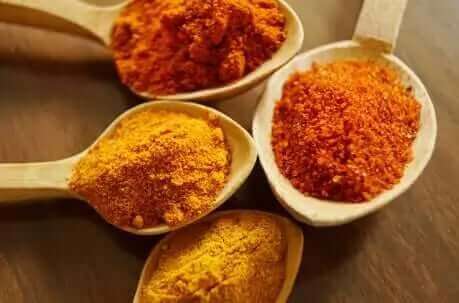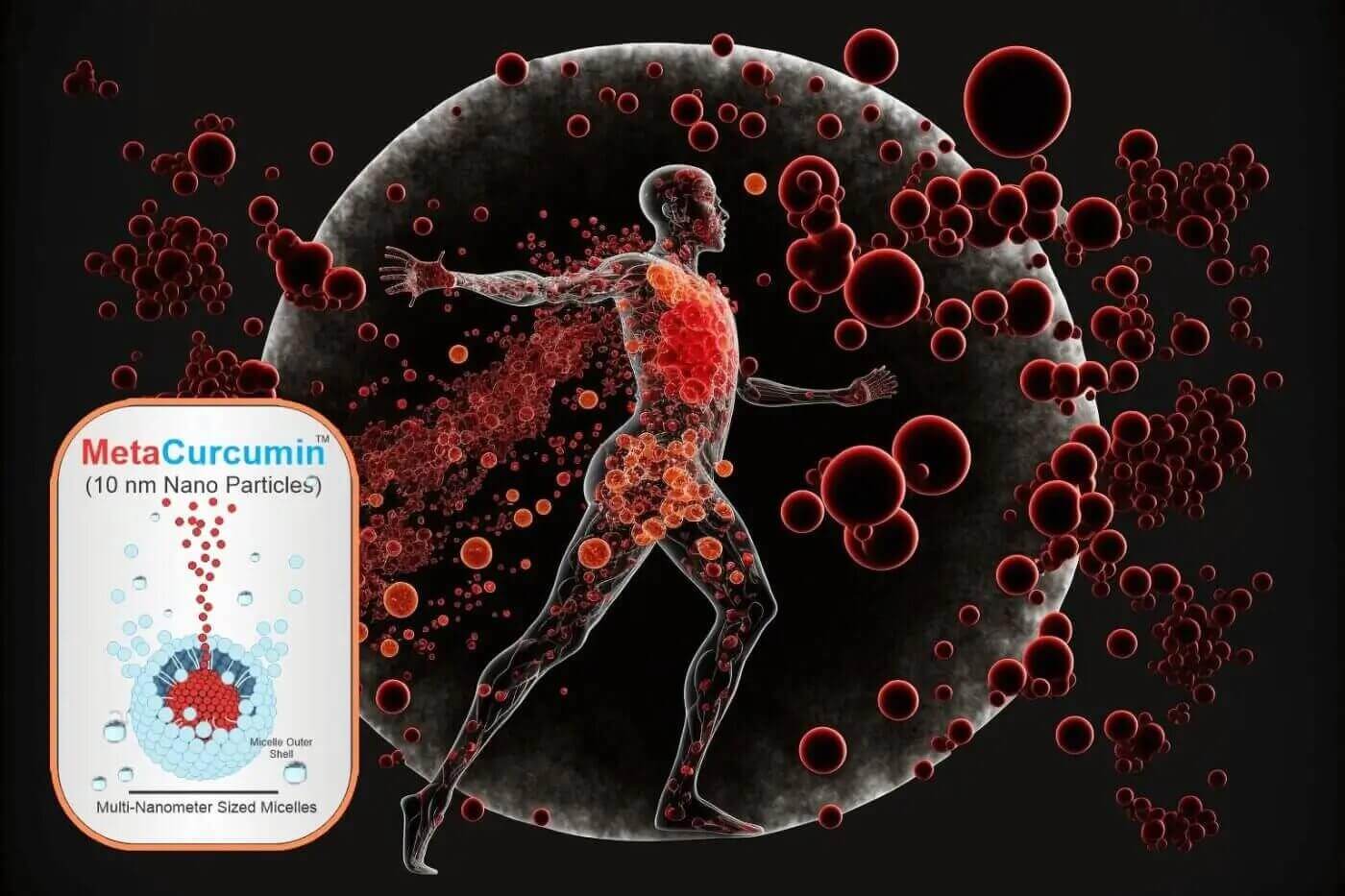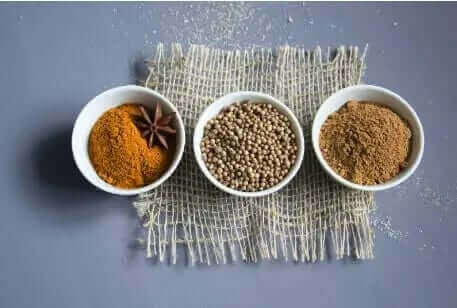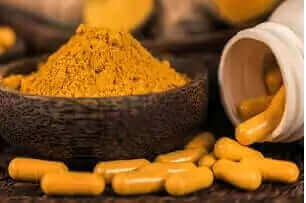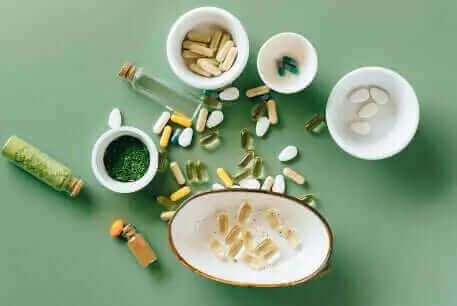Turmeric Health Benefits: 10 Science-Backed Ways This Golden Spice Transforms Your Wellness
Turmeric stands as one of nature's most remarkable healing treasures, offering extraordinary health benefits that modern science continues to validate. This vibrant golden spice, responsible for giving Indian curries their distinctive color and American mustard its bright yellow hue, contains powerful compounds that may revolutionize your approach to wellness. With over thousands of years of traditional use and hundreds of contemporary research studies, turmeric emerges as potentially one of the most potent dietary supplements available today.

The secret behind turmeric's incredible healing potential lies in curcumin, the primary active compound among the curcuminoids found within this golden root. Curcumin delivers exceptional antioxidant capabilities while providing powerful anti-inflammatory properties that rival pharmaceutical medications without unwanted side effects. However, since natural turmeric contains only 2-9% curcuminoids, selecting high-purity extracts becomes essential for experiencing the full spectrum of benefits this remarkable spice offers.
Understanding turmeric's potential can open doors to improved health, enhanced vitality, and protection against numerous chronic conditions. The following ten science-backed benefits demonstrate why incorporating turmeric into your wellness routine could be one of the most transformative decisions you make for your long-term health and happiness.
1. Exceptional Anti-Inflammatory Powerhouse
Chronic inflammation serves as the underlying driver of virtually every major Western disease, from heart disease and cancer to metabolic syndrome and degenerative conditions that concern millions worldwide. When your body remains in a constant state of inflammatory response, cellular damage accumulates over time, accelerating aging and disease development. This makes fighting chronic inflammation absolutely crucial for maintaining optimal health and preventing the conditions that rob us of vitality and longevity.
Turmeric's curcumin demonstrates anti-inflammatory effects comparable to powerful pharmaceutical medications, yet without the concerning side effects that often accompany conventional treatments. Research reveals that curcumin targets multiple inflammatory pathways simultaneously, providing comprehensive protection against the inflammatory cascade that damages tissues throughout your body. This natural approach to inflammation control offers hope for those seeking safe, effective alternatives to long-term medication use.
The beauty of turmeric's anti-inflammatory action lies in its ability to address inflammation at its source while supporting your body's natural healing mechanisms. Unlike synthetic drugs that may suppress symptoms while causing other problems, curcumin works harmoniously with your body's systems to restore balance and promote genuine healing from within.
2. Extreme Antioxidant Protection
Oxidative damage represents one of the fundamental mechanisms driving aging and countless diseases that threaten our wellbeing. Free radicals, highly reactive molecules generated through normal metabolism and environmental exposure, relentlessly attack vital cellular components including proteins, fatty acids, and DNA. Without adequate antioxidant protection, this ongoing assault leads to premature aging, cellular dysfunction, and increased disease risk.
Turmeric's curcumin functions as an extraordinarily potent antioxidant capable of neutralizing dangerous free radicals before they cause cellular damage. Beyond direct free radical scavenging, curcumin enhances your body's natural antioxidant enzyme systems, creating a powerful dual-action defense against oxidative stress. This comprehensive antioxidant support helps preserve cellular integrity, maintain youthful function, and protect against age-related decline.
The remarkable antioxidant properties of turmeric offer genuine hope for those concerned about aging and disease prevention. By incorporating this golden spice into your routine, you're providing your cells with extraordinary protection that supports longevity, vitality, and optimal function throughout your life.
3. Alzheimer's Disease Prevention
The prospect of cognitive decline and Alzheimer's disease represents one of the most feared aspects of aging, affecting not only individuals but entire families. However, emerging research on turmeric provides tremendous hope for brain protection and cognitive preservation. Dr. James A. Duke, a renowned ethnobotanist, discovered over 50 studies documenting turmeric's remarkable impact on Alzheimer's disease prevention and treatment.
The research reveals that turmeric contains multiple bioactive compounds that actively prevent beta-amyloid formation, the toxic protein that accumulates in brain tissue and gradually destroys cognitive function in Alzheimer's patients. This preventive action offers incredible hope for maintaining mental clarity and cognitive sharpness throughout the aging process.
Additionally, scientists have identified aromatic-turmerone, another powerful compound in turmeric, that stimulates brain stem cells to regenerate and repair themselves. This discovery suggests that turmeric not only protects existing brain cells but may actually help restore damaged neural tissue, opening possibilities for cognitive improvement and brain repair that seemed impossible just years ago.
4. Cancer Fighting Properties
Cancer remains one of humanity's greatest health challenges, affecting millions of lives and families worldwide. The discovery of turmeric's cancer-fighting properties brings tremendous hope to this battle. Dr. Duke's comprehensive research identified over 700 scientific references examining the relationship between cancer, turmeric, and curcumin, revealing extraordinary potential for both prevention and treatment.
Animal studies demonstrate curcumin's effectiveness against multiple cancer types, including prostate, colon, breast, and other common forms of this devastating disease. The research shows that curcumin works through multiple mechanisms to fight cancer, including preventing tumor formation, inhibiting cancer cell growth, and even promoting cancer cell death while protecting healthy cells.
While human clinical trials continue to explore these promising findings, the extensive research provides hope that turmeric supplementation may serve as a powerful ally in cancer prevention strategies. The fact that this natural compound shows such broad-spectrum anti-cancer activity without harmful side effects makes it an exciting addition to comprehensive wellness approaches.
5. Arthritis Relief and Joint Health
Joint pain and arthritis affect millions of people, limiting mobility, reducing quality of life, and often requiring long-term pharmaceutical intervention with concerning side effects. Turmeric's powerful anti-inflammatory properties offer new hope for those struggling with these painful conditions, providing effective relief through natural mechanisms.
Clinical trials reveal that turmeric extract performs as effectively as ibuprofen for knee osteoarthritis pain relief, yet without the gastrointestinal, cardiovascular, and kidney risks associated with regular NSAID use. This breakthrough finding means that people suffering from arthritis can experience meaningful pain reduction and improved mobility using a natural approach that supports rather than stresses their overall health.
The anti-inflammatory action of curcumin addresses arthritis at its source by reducing inflammatory mediators that cause joint swelling, pain, and tissue damage. Regular turmeric supplementation may help preserve joint cartilage, reduce morning stiffness, and restore the freedom of movement that arthritis often steals from daily life.
6. Diabetes Prevention and Blood Sugar Support
Type 2 diabetes represents a growing health crisis affecting millions worldwide, often developing silently over years before diagnosis. The encouraging news is that research demonstrates turmeric's potential to delay or prevent the onset of this life-altering condition, offering hope for those at risk or in pre-diabetic stages.
A significant 2012 study revealed that curcumin supplementation could effectively postpone Type 2 diabetes development in at-risk individuals. This finding suggests that incorporating turmeric into your wellness routine may provide crucial protection during the critical period when diabetes typically develops.
Curcumin appears to support healthy blood sugar metabolism through multiple pathways, improving insulin sensitivity and supporting pancreatic function. For those concerned about diabetes risk factors such as obesity, sedentary lifestyle, or family history, turmeric supplementation offers a natural, proactive approach to metabolic health protection.
7. Heart Disease Prevention
Heart disease remains the leading cause of death globally, claiming more lives than any other condition. However, turmeric's cardiovascular benefits provide genuine hope for protecting and strengthening heart health through natural mechanisms that address multiple risk factors simultaneously.
The combination of curcumin's anti-inflammatory and antioxidant properties creates powerful cardiovascular protection by reducing arterial inflammation, preventing oxidative damage to blood vessels, and supporting healthy circulation. These actions address the underlying processes that lead to heart disease development, offering preventive benefits that may significantly reduce cardiovascular risk.
Research demonstrates that curcumin helps repair existing cardiovascular damage while preventing future harm, supporting the heart's natural healing and protective mechanisms. This dual approach makes turmeric supplementation an exciting addition to heart-healthy lifestyle choices, potentially transforming cardiovascular wellness outcomes.
8. Brain Power Enhancement and Cognitive Support
Mental clarity, sharp memory, and cognitive vitality represent precious assets that we all hope to maintain throughout life. Turmeric's brain-boosting properties offer remarkable potential for enhancing cognitive function while protecting against age-related mental decline.
Curcumin increases production of BDNF (brain-derived neurotrophic factor), a crucial hormone that promotes new neuron formation and supports existing brain cell health. Higher BDNF levels correlate with improved memory, enhanced learning capacity, and better overall cognitive function, making this one of turmeric's most exciting benefits for mental performance.
Additionally, curcumin demonstrates exceptional effectiveness at reducing beta-amyloid plaques and tau protein aggregation, the toxic accumulations commonly found in Alzheimer's disease. This dual action of promoting new brain cell growth while clearing harmful proteins creates comprehensive brain protection that may preserve cognitive sharpness and mental vitality throughout the aging process.
9. Natural Depression Support
Mental health challenges, particularly depression, affect millions of people seeking safe, effective treatment options. Research reveals that curcumin shows promising antidepressant properties, offering hope for those struggling with mood disorders or seeking natural mental health support.
Clinical studies demonstrate that curcumin performs as effectively as fluoxetine (Prozac) in treating depression symptoms, yet without the side effects commonly associated with pharmaceutical antidepressants. This breakthrough finding provides hope for those seeking natural alternatives or complementary approaches to mental health care.
Depression often correlates with reduced hippocampus size and lower brain-derived neurotrophic factor levels. Curcumin's ability to increase BDNF production may help reverse these changes while supporting healthy brain structure and function. Additionally, research suggests that curcumin can boost serotonin and dopamine levels, the neurotransmitters crucial for mood regulation and emotional wellbeing.
10. Beauty and Skin Health Transformation
Beyond internal health benefits, turmeric offers remarkable beauty and skin health advantages that can transform your appearance and confidence. This golden spice contains compounds that address multiple skin concerns while promoting a healthy, radiant complexion from within.
Turmeric's anti-inflammatory and antioxidant properties benefit skin health by reducing inflammation that contributes to acne, supporting collagen production for wrinkle prevention, and protecting against environmental damage that accelerates aging. Regular turmeric use may help address stretch marks, heal cracked heels, reduce acne breakouts, and promote overall skin vitality.
The comprehensive skin benefits of turmeric extend to hair health as well, with traditional uses including promoting hair growth, reducing scalp inflammation, and enhancing natural shine. These beauty benefits make turmeric supplementation an excellent addition to any comprehensive wellness and beauty routine.
The Scientific Foundation
The extraordinary health benefits of turmeric rest upon a solid foundation of scientific research spanning decades of investigation. Hundreds of peer-reviewed studies have examined turmeric's therapeutic properties, consistently revealing remarkable potential for preventing and treating numerous health conditions.
What makes this research particularly compelling is the consistency of findings across different study types, populations, and health conditions. From laboratory studies examining cellular mechanisms to clinical trials testing human subjects, the evidence supporting turmeric's health benefits continues to accumulate and strengthen.
The research demonstrates that turmeric works through multiple biological pathways simultaneously, providing comprehensive health support rather than targeting single symptoms or conditions. This multi-modal approach explains why turmeric shows benefits for such diverse health concerns, from inflammation and heart disease to brain health and mood disorders.
Incorporating Turmeric Into Your Wellness Journey
The beauty of turmeric lies in its versatility and accessibility as both a culinary spice and therapeutic supplement. You can easily begin experiencing turmeric's benefits by incorporating the spice into your daily meals, adding it to curries, soups, smoothies, or warm milk preparations.
For those seeking therapeutic levels of curcumin, concentrated supplements offer a convenient and effective approach. When selecting turmeric supplements, look for products that enhance bioavailability, as curcumin absorption can be challenging. Some formulations include black pepper extract (piperine) or use specialized delivery systems to improve absorption and effectiveness.
Starting with small amounts allows your body to adjust gradually while you monitor your response. Many people find that consistent daily use provides the best results, as turmeric's benefits tend to accumulate over time with regular consumption.
Dosage and Safety Considerations
While turmeric is generally safe for most people when used as a culinary spice, supplement dosages require more careful consideration. Most research studies use curcumin doses ranging from 500mg to 1000mg daily, though some therapeutic applications use higher amounts under professional guidance.
Turmeric supplementation is generally well-tolerated, but some individuals may experience mild digestive upset when first beginning use. Taking turmeric with food often minimizes any stomach irritation while improving absorption. People taking blood-thinning medications should consult healthcare providers before beginning turmeric supplementation, as curcumin may enhance anticoagulant effects.
Pregnant and breastfeeding women should limit turmeric to culinary amounts rather than therapeutic doses. Additionally, individuals with gallstones or bile duct obstruction should avoid turmeric supplements, as they may worsen these conditions.
Quality and Sourcing Matters
The quality of turmeric products varies significantly, making careful selection crucial for achieving optimal benefits. Look for organic turmeric powder or supplements that provide third-party testing for purity and potency. Avoid products with artificial colors, fillers, or unnecessary additives that may diminish effectiveness.
For supplement forms, standardized curcumin extracts with known curcuminoid content provide more predictable therapeutic effects than raw turmeric powder. Some advanced formulations combine curcumin with other beneficial compounds or use specialized extraction methods to enhance bioavailability and effectiveness.
Reputable supplement companies provide certificates of analysis showing curcumin content, heavy metal testing, and microbial safety testing. This transparency ensures you're getting a pure, potent product that delivers the health benefits you're seeking.
Future Research and Emerging Applications
The future of turmeric research looks incredibly promising, with ongoing studies exploring new applications and deeper understanding of its therapeutic mechanisms. Current investigations examine turmeric's potential for neurodegenerative diseases, metabolic disorders, immune system support, and cancer prevention in human populations.
Emerging research focuses on developing more bioavailable forms of curcumin and combination therapies that enhance its effectiveness. Scientists are also investigating the synergistic effects of combining curcumin with other natural compounds to create more powerful therapeutic formulations.
As research continues, we can expect to discover even more applications for this remarkable golden spice, potentially revolutionizing natural approaches to health and wellness in ways we're only beginning to understand.
Frequently Asked Questions About Turmeric
What makes turmeric so beneficial for health?
Turmeric contains curcumin, a powerful compound with exceptional anti-inflammatory and antioxidant properties. This active ingredient makes turmeric one of the most potent natural supplements, capable of fighting chronic inflammation, supporting brain health, and protecting against various diseases.
How much curcumin is actually in turmeric?
Natural turmeric contains only 2-9% curcuminoids by weight. This is why many people choose concentrated curcumin supplements to achieve therapeutic benefits, as you would need to consume large amounts of turmeric powder to get significant curcumin levels.
Can turmeric really help prevent Alzheimer's disease?
Research shows turmeric contains compounds that prevent beta-amyloid formation, the substance that damages brain function in Alzheimer's disease. Studies have found over 50 research papers supporting turmeric's neuroprotective effects, making it a promising natural approach for brain health.
Is turmeric effective for arthritis pain?
Clinical studies demonstrate that turmeric extract can be as effective as ibuprofen for knee osteoarthritis pain. The anti-inflammatory properties of curcumin help reduce joint inflammation and improve mobility without the side effects associated with conventional pain medications.
How does turmeric support heart health?
Turmeric supports cardiovascular health through its anti-inflammatory and antioxidant properties. Curcumin helps repair damage to blood vessels, reduces inflammation in arteries, and supports overall heart function, addressing multiple risk factors for heart disease.
Can turmeric improve brain function and memory?
Yes, curcumin increases BDNF (brain-derived neurotrophic factor), a hormone that promotes new neuron growth. It also effectively reduces beta-amyloid plaques and tau protein aggregation, supporting both memory enhancement and protection against cognitive decline.
Does turmeric have anti-cancer properties?
Research has identified over 700 studies examining turmeric and cancer. Animal studies show curcumin's effectiveness in preventing or treating prostate, colon, breast, and other cancers, though more human clinical trials are needed to confirm these promising results.
How should I incorporate turmeric into my daily routine?
You can add turmeric powder to cooking, smoothies, or warm milk. For therapeutic benefits, consider concentrated curcumin supplements with enhanced bioavailability. Start with small amounts and gradually increase, always consulting healthcare providers for specific health conditions.
Your Path to Transformation
The journey toward optimal health and vitality can begin with simple choices that compound into extraordinary results over time. Turmeric represents one of those remarkable choices, offering a natural path to enhanced wellness that has supported human health for thousands of years while continuing to reveal new benefits through modern scientific research.
Whether you choose to incorporate turmeric into your cooking, enjoy it in warm golden milk preparations, or opt for concentrated curcumin supplements, you're taking a powerful step toward supporting your body's natural healing and protective mechanisms. The science behind turmeric's benefits provides confidence that this ancient wisdom holds genuine promise for modern health challenges.
For those seeking the highest quality turmeric and curcumin supplements, RevGenetics offers scientifically-formulated products designed for optimal bioavailability and effectiveness. You can explore more about curcumin supplements and discover how this golden spice can transform your approach to health and wellness.
The potential for transformation lies within your reach. By embracing the power of turmeric, you're not just adding a supplement to your routine – you're investing in a brighter, healthier future filled with vitality, clarity, and the confidence that comes from taking proactive control of your wellbeing.
References:
- https://onlinelibrary.wiley.com/doi/abs/10.1002/ptr.7360
- https://www.sciencedirect.com/science/article/pii/S2452199X21002863
- https://www.sciencedirect.com/science/article/abs/pii/S0144861721014673
- https://www.sciencedirect.com/science/article/abs/pii/S0308814621029319
- https://www.tandfonline.com/doi/abs/10.1080/1028415X.2022.2084550?cookieSet=1
- https://www.sciencedirect.com/science/article/abs/pii/S1044579X20300444
- https://onlinelibrary.wiley.com/doi/abs/10.1002/ptr.7305
- https://www.sciencedirect.com/science/article/pii/S2452199X21002863
- https://www.hindawi.com/journals/bmri/2022/1375892/
- https://www.mdpi.com/2073-4409/11/3/342
- https://www.worldscientific.com/doi/abs/10.1142/S0192415X22500549
- https://link.springer.com/article/10.1007/s40263-022-00901-9
- https://www.sciencedirect.com/science/article/pii/S1742706122003920
- https://www.mdpi.com/1420-3049/27/16/5060/htm
- https://www.ncbi.nlm.nih.gov/pmc/articles/PMC2527621/?__hstc=119494998.23589315a9a85fe68accc7739556ed03.1474934400076.1474934400078.1474934400079.2&__hssc=119494998.1.1474934400079&__hsfp=1773666937
- https://www.ncbi.nlm.nih.gov/pmc/articles/PMC3474959/?fbclid=IwAR39j_u7J34WviglZi3M5db0IgaHPQHWdPIjkx0DSXKxVnmgQ3ysIIqmrUA

